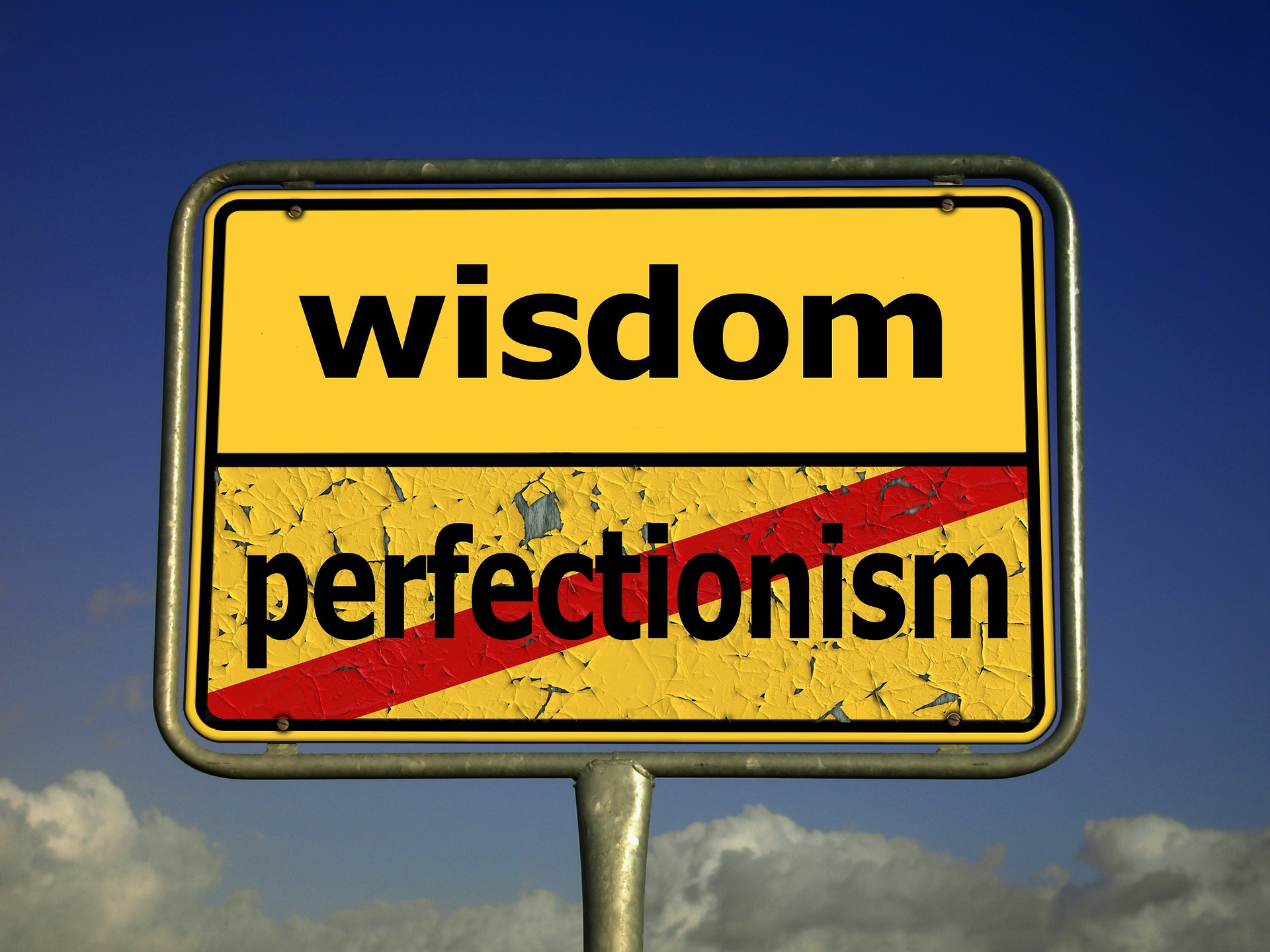

6 Simple and Effective Counseling Techniques to Curb Your Self-Defeating Perfectionism in 2021
6 Simple and Effective Techniques to Curb Your Self-Defeating Perfectionism in 2021
The pursuit of perfection is the road to unhappiness.
Has anyone ever told you that you were a perfectionist? Perfectionism is a barrier to sound mental health and stands in the way of you developing sound wellness and wellbeing. But, have you ever tried to stop your perfectionism? People are quick to give off-the-cuff advice about things you should or shouldn’t do. Maybe they say, “Stop this”, or “Do that”, but it is rare that they follow their advice up with practical steps on how to change the habits they point out. In David Burn’s powerful and life changing book, Feeling Good: The New Mood Therapy, he spends a chapter outlining 15 practical techniques to overcome perfectionism. Our mental health counselors have chosen the top 6 of his simple and effective techniques that will help you to overcome perfectionism in 2021!
- Make a list of the Pros & Cons of being a perfectionist.
If you take some time to think about it, you might realize that your perfectionism isn’t really helping you. Have you ever stopped to wonder if your perfectionism does more harm than good? Perhaps you feel like it gives you an “edge,” but have you thought about the downsides? And what if you could perform just as well, or even better without it? Maybe it’s not that you’re successful because of your perfectionism, but rather that you are successful despite your perfectionism. The first simple tip is to take some time right now to write down a pros and cons list of being a perfectionist. You can do this on your phone, or on a piece of paper. Do the pros outweigh the cons? You may find that the advantages are pretty slim! If the advantages seem to outweigh the disadvantages, why don’t you give the advantages a second look and test them out.
The Pleasure of Perfection Experiment.
Try altering your standards in various activities so you can see how your performance reacts to high standards, middle standards, and low standards. You might be shocked to realize that by lowering your standards of perfection you will feel better about what you do and do it more effectively! Use the following experiment to test out the advantages of your perfectionism:
Believed advantage from your list of Pros: “My perfectionism makes me more effective.”
- Choose an Activity for example cleaning, reading, writing a report for work, cooking a meal for a loved one, or anything else in which you think striving for perfection makes you more effective.
- When you start that activity instead of trying to be 100% perfect, set the goal for 80% perfection, 60% perfection, or even 40% perfection.
- After completing the activity with a less then 100% perfection standard see how much you enjoy the activity and how well you completed that activity compared to before.
Now ask yourself, “Was I less effective? How much did I enjoy that activity?” You can try this with any task, and any standard of perfection. Give it a try and see what happens!
- Developing a Process Orientation
Another approach to curb your habit of perfectionism is to learn to adopt a processes orientation. Focusing simply on outcomes is a recipe for all-or-nothing thinking. When David Burns was a young therapist he held the belief that he had to do outstanding work with each client each session. When his patients benefited from a session he was on top of the world, but when a client responded poorly on the other hand, he’d feel miserable all day and tell himself he was a failure. Bringing this problem to his colleague Dr. Aaron Beck, he was told. “Imagine that you had a job driving a car to City Hall every day. Some days you hit mostly green lights and made great time. Other days you’d hit lots of red lights, and traffic jams and the drive would be much longer. Your driving skill would be the same each day, so why not feel equally satisfied with the job you did?” The Dr. Burns learned that instead of focusing on outcomes, he could focus on good, consistent effort at each session, regardless of how the patient responded. This process outlook guaranteed he could experience 100% success with the effort he put forth each day.
Emphasizing the process you are engaging in, rather than the outcome, provides a greater opportunity for learning and mastery. Appreciating your engagement, learning, and the effort you put forth on activities, protects you from your perfectionistic evaluation. It allows you to be more present in the moment, and to develop a sense of mastery. Try to focus on learning, development, and effort in activities you do, rather than a success or failure perspective. Ask yourself, what are some ways that you can focus on developing a process orientation in your life.
- Overcome perfectionism by setting strict time limits on all your activities for one week.
Place a time limit on how long you plan to engage in each of your daily activities for a week. This will help you focus on the flow of life and allow you to enjoy your time more fully rather then getting wrapped up in perfecting everything you do. If you want to be happy, set modest goals! Schedule your time in the morning and decide the amount of time you will budget on each activity. When the time is up, quit that activity whether or not you have completed it, and move on to the next project. Most people have a tendency to overestimate how much they are able to get done in a day. Your perfectionism likely becomes procrastination because you insist on doing everything so thoroughly. This means taking far longer than necessary to complete daily and weekly tasks. The result is an ever-growing to-do list that is never completed. At the end of the day you probably beat yourself up for not getting “enough” done. This is completely avoidable by more effective planning and placing time limits on activities. Instead of trying to completely organize your closet, set a time limit of 20-minutes each week. This way, you create a frequent habit, rather than a weekend cleaning frenzy! Planning your activities based on specific amounts of time promotes the development of healthy, sustainable habits, and helps you to move past your self-defeating perfectionism.
- Learn how to make mistakes.
Are you afraid of making mistakes? This may be holding you back from taking healthy risks! We can easily forget that mistakes are not all bad! This leads to trying to do everything perfectly. Mistakes give us an opportunity to learn, grow, and relate to each other. A powerful method for overcoming perfectionism is learning how to make mistakes. One helpful approach is to write an essay describing why it is both irrational and self-defeating to try to be perfect and to fear making mistakes. Writing a personal essay for yourself exploring why it is okay to make mistakes can help you to be more confident in your journey to give up perfectionism. Remember the world won’t come to an end because of a mistake you make! Writing a letter can be a tangible reminder that mistakes are okay, and that they allow us to learn and grow!
- Focus on your success’s not your failures.
Do you have a habit of only focusing on the ways you fall short? If you are a perfectionist, you probably have a tendency to focus only on the things you have not done perfectly, or that are incomplete. You end up ignoring and forgetting all the things you have done right. This can create an unhelpful and overly negative view of yourself and the world. It doesn’t make any rational sense to just focus on the things you have on your to do list, and completely forget all of the things you have already completed! Here is a very simple, but very effective technique to help you foster an attitude of appreciation and recognition for your accomplishments and successes both big and small.
Try this simple exercise to reverse this habit!
- Keep a piece of paper next to your bed.
- Before you go to sleep at night, go through your day and count all of the things you did right. Make sure to count all of them, nothing is too small!
- Write down that number of things you did right, or that you completed on your paper each day for two weeks and allow yourself to notice all the things you are doing right!
- Keep a weekly count of all the positive things you’ve done, and tasks completed.
This exercise will help you focus on the positives and have a more balanced perspective. Remember to count literally everything you do right! This might seem too simplistic, but just because it is simple, doesn’t mean it doesn’t work. What do you have to lose?! Give it a try and see how you feel after two weeks.
- Use logic.
My personal favorite tool to use is this logical equation:
Premise One: All Human beings make mistakes.
Premise Two: I am a human being.
Conclusion: I make mistakes because I am a human.
If all humans make mistakes, and I am a human, then it follows that I will make mistakes because of my humanity. Logically you will and even should make mistakes. It’s in your nature! Next time you make a mistake, instead of beating yourself up, say to yourself, “I made that mistake because I am human,” or “That mistake just proves that I am human like everyone else,” or “Making a mistake doesn’t mean that I am a failure, it just means that I am a human.” Mistakes are a part of who we are; they are an essential part of our development.
You can take it one step further and ask yourself, “What can I learn from my mistake?” Write down one of the mistakes you have made and then list all the things you have learned from that mistake. Learning to appreciate mistakes helps us to realize that being perfect is not part of the human condition but learning and growing certainly is! In the words of David Burns, “If you were perfect, there’d be nothing to learn, no way to improve, and life would be completely void of challenge and the satisfaction that comes from mastering something that takes effort.”
The Pursuit of Perfection is the road to Unhappiness.
If you maintain a standard for evaluating your performance that you cannot ever meet you are going to make yourself miserable! If the standard of perfection doesn’t fit reality, why not give it up!? Perfectionism is founded on all-or-nothing thinking. Most of the time, it just steals our joy and satisfaction. If you look around you, how many things can really fit into an all-or-nothing mold? Is your room a complete mess, or are some (maybe even many) things out of place? Do you know anyone who is perfectly calm and confident all the time? All-or-nothing thinking doesn’t really fit life very often, and neither does perfection. Most importantly, you don’t need to be perfect to be happy. If you don’t believe me try this thought experiment, take a moment to imagine a time in your life when you were really happy. Close your eyes, and picture that moment in vivid detail. Now ask yourself, “What was perfect about that time or experience?” In all likelihood, nothing was completely perfect, but it didn’t stop you from being happy! You don’t need to be perfect. Just be you. This year, instead of seeking perfection, use these tips and techniques to focus on thriving as your own unique self.
This Post was adapted from Dr. David Burns book Feeling Good: The New Mood Therapy.
Burns, D. D. (2017). Dare to Be Average: Ways to Overcome Perfectionism. In Feeling Good: The New Mood Therapy(pp. 345-375). Blackstone Audio, Incorporated.
Related Posts
6 Simple and Effective Counseling Techniques to Curb Your Self-Defeating Perfectionism in 2021
January 11, 2021
6 Simple and Effective Techniques to Curb Your Self-Defeating Perfectionism in...
The Harm of Face Filters and AI Headshots
December 24, 2023
The Harm of Face Filters of AI Headshots In an era dominated by social media...



